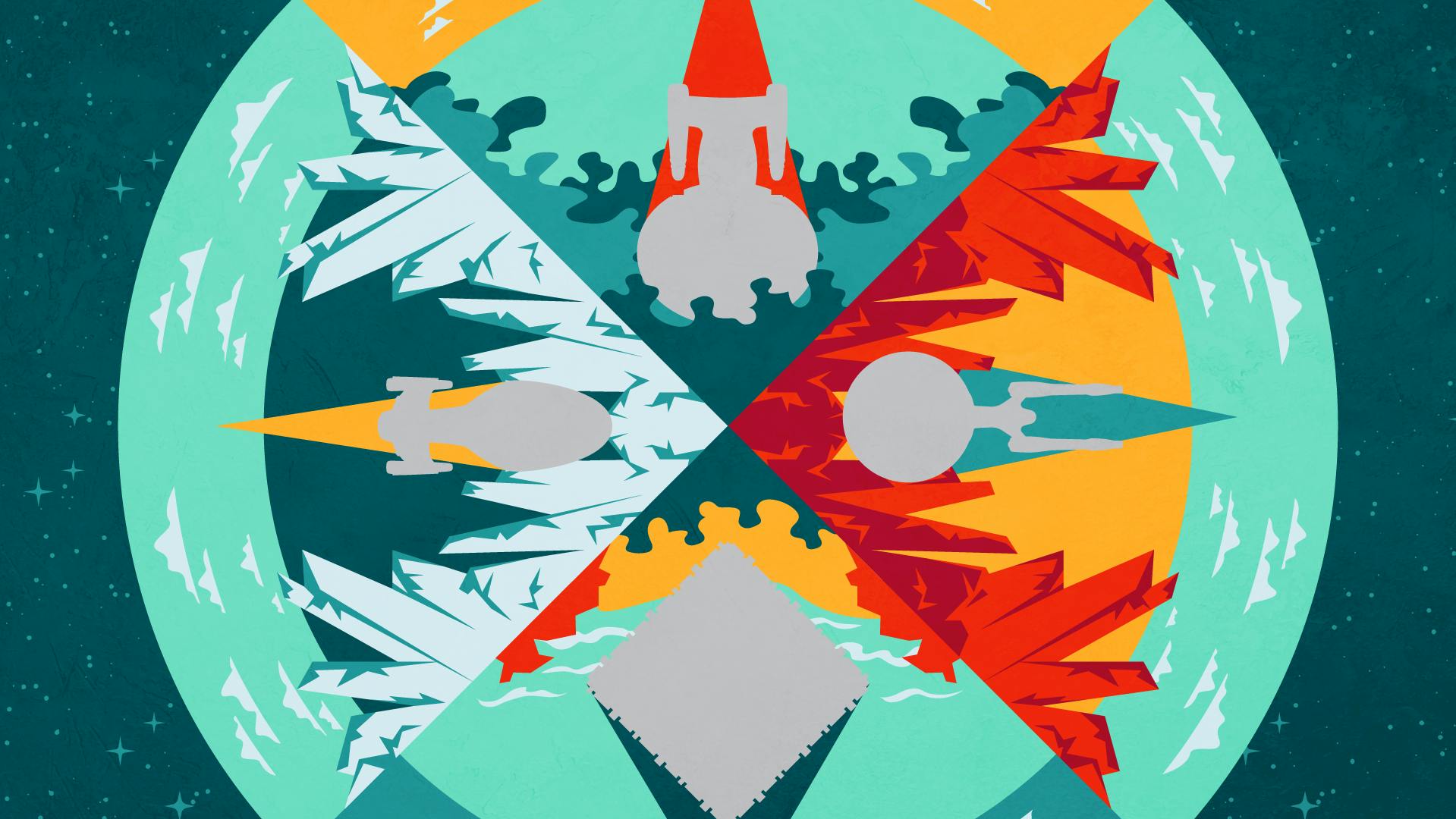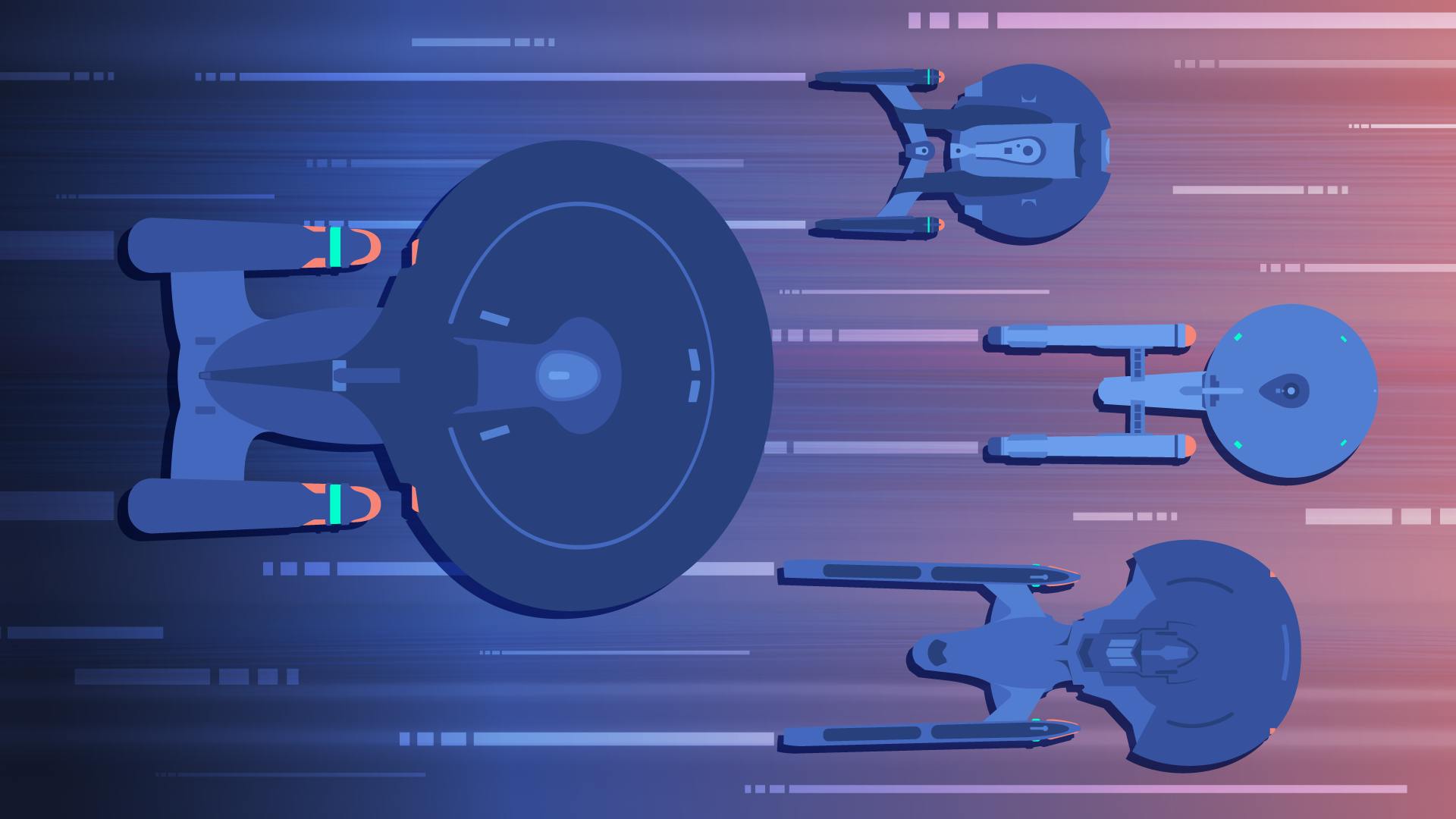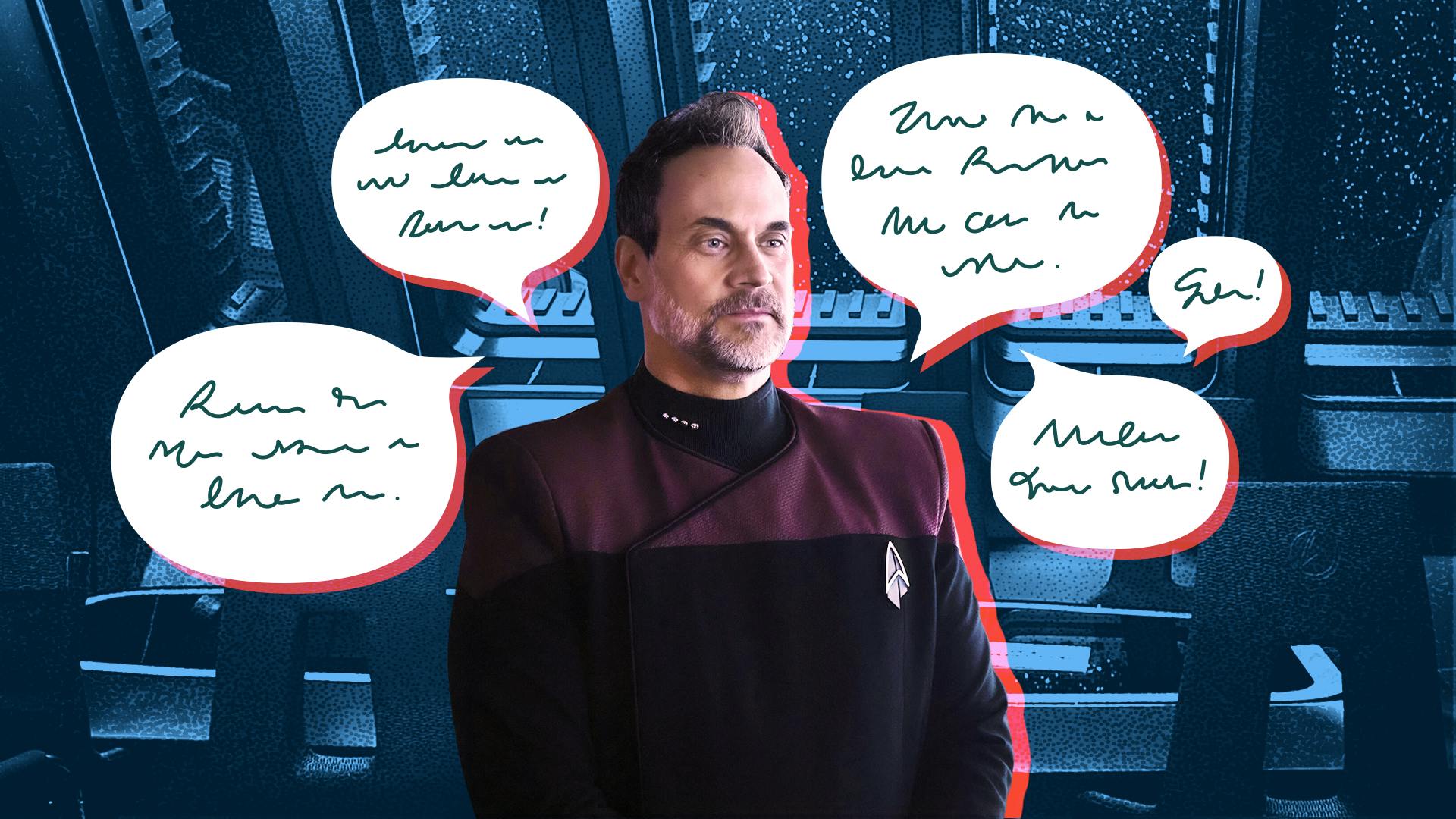Published Jan 6, 2020
Your Ultimate Star Trek: Picard Watch Guide
From "The Best of Both Worlds" to Star Trek: Nemesis, here is everything you need to get caught up before Star Trek: Picard
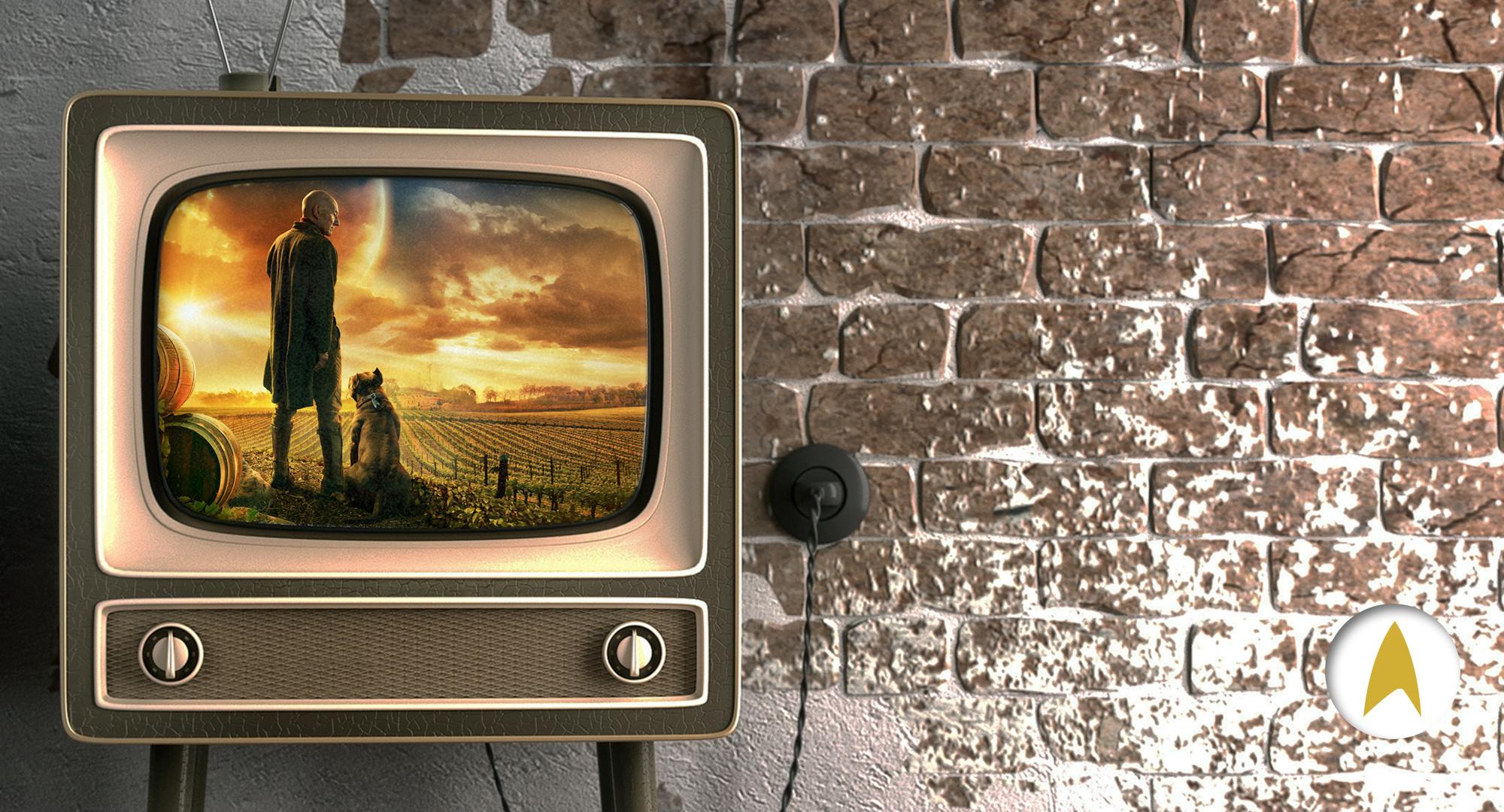
StarTrek.com
It’s almost time to rejoin one of Starfleet’s most beloved captains, Jean-Luc Picard. As the premiere for Star Trek: Picard draws closer, we’ve recapped some key episodes and movies to watch to get caught up on the character’s journey. With seven seasons and four films, Picard has grown and changed over the course of his career as captain. There are so many key moments that shape him into the man he is, but we’ve selected a few important moments that drive him in the beginning of his newest adventure.
From Picard’s psychology to his encounters with the Borg to the role Data played on the Enterprise, here are the key moments to remember as he returns to our screens. We’ve grouped them into different categories — Picard as a character, the Borg, Data, and Romulans — but you can choose to watch them in any order you’d like.
Catch Up on These Episodes Before Star Trek: Picard
A Crash Course on Jean-Luc Picard
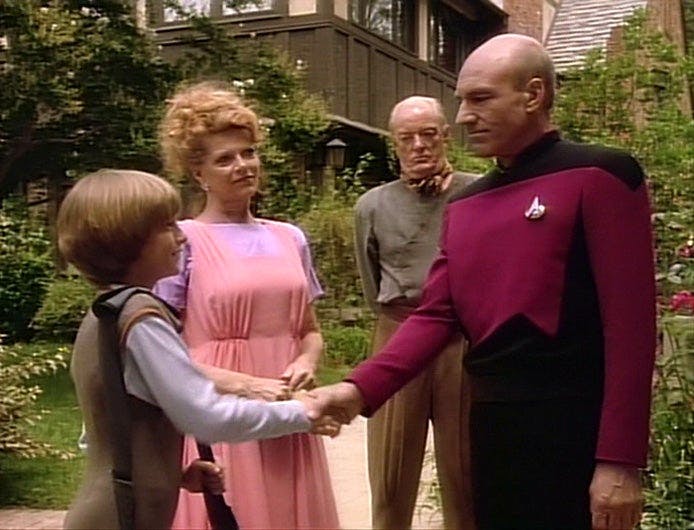
StarTrek.com
In the wake of being captured and absorbed into the Borg Collective in the season three finale and season four premiere, Picard returns home on shore leave for the first time in almost 20 years. The trauma of the Borg’s torture weighs heavily on Picard, even as he claims he is alright. While most of his family greets him warmly, Picard’s brother is cold towards him due to their differing outlooks on technology and the future. Ultimately, they are able to reconcile, but not before Picard has to confront his own trauma.
At one point, Picard talks to his friend Louis about how while he was happy his family kept traditions alive, he wasn’t bound to those traditions. Louis replies that Picard always reached for the future. We know that Picard has returned to his family’s vineyard, so what drove him to abandon the future in pursuit of the past? That might be a mystery left for the pilot of Picard, but this is an excellent episode for fans to get a feel for Picard’s psychology and deepen the mystery of what could have made him leave Starfleet.
Tragedy struck the Picard family in the movie Star Trek: Generations, during which Picard finds out that his brother and nephew have died in a fire. Picard is now the last of his family, and without him, there is no one to keep the traditions alive. This is yet another tragedy for the captain, and sets up the groundwork for his ultimate return to the family vineyard.
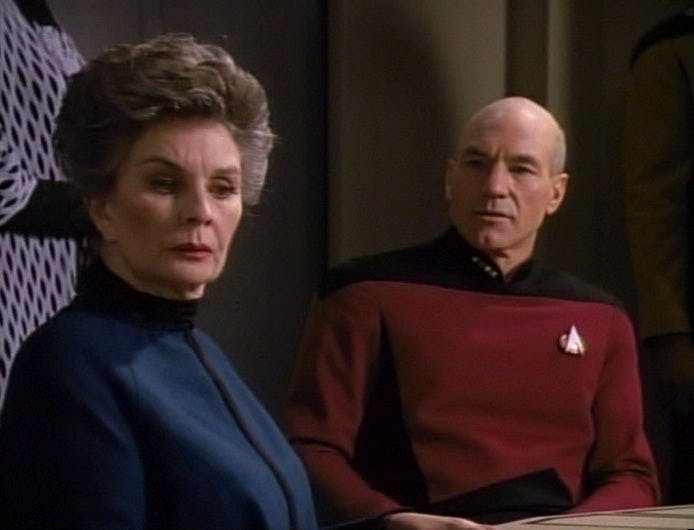
StarTrek.com
After the warp drive is damaged and Romulan interference is suspected, retired Admiral Norah Satie is brought on to find who on the Enterprise could be a spy. Despite finding a Klingon officer who is leaking information, it is revealed that the supposed sabotage was in fact a simple malfunction and not an attack. Satie is unsatisfied, though, and begins a fanatical hunt to find a traitor on the Enterprise, much to Picard’s dismay.
This is an episode that showcases Picard’s strong sense of justice. He says he will not treat a man as a criminal unless there is cause to do so, and he stands tall in defense of his crew and himself. Picard is firm, but he stands for the scales of justice in the universe being balanced. He will not allow anyone to remove due process or to play judge and jury. We can assume that Picard’s innate sense of righteousness and justice will come into play as he faces the Romulans in their newly imperiled state in Picard, because one of the reasons Picard is such a powerful character is that he will do the right thing to ensure that justice is served, not revenge
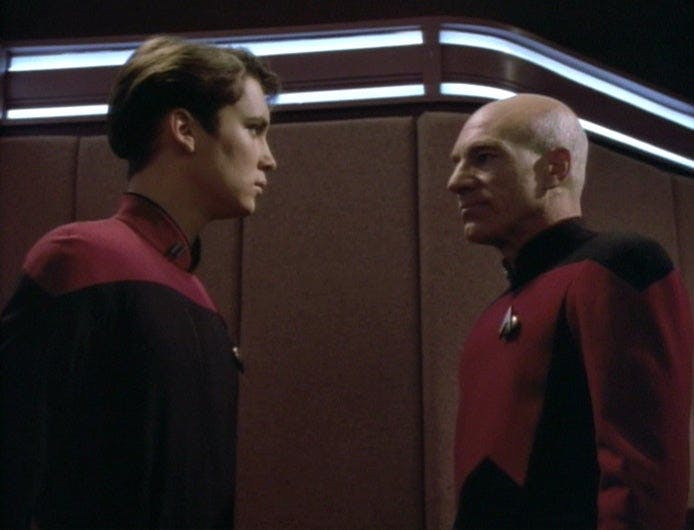
StarTrek.com
Picard imparts an important lesson to young Wesley Crusher in this episode. When Wesley’s squadron suffers an accident that costs a cadet his life, it is revealed the squadron was attempting a banned maneuver. Ultimately, Wesley reveals the truth at a hearing to uncover what happens, and Picard’s trust in him is restored. Picard comforts Wesley and says that while the immediate future will be hard, ultimately he will have respect and trust from his fellow students again, even if Wesley doubts this.
Picard has unwavering faith in his crew and his family, including Wesley. When that trust is broken, he does not immediately berate Wesley and cut him out of his family but offers him a chance to fix his mistakes. His offer of a way to mend this broken trust shows the empathetic side of the captain, and his unshakable trust in those he cares for. Picard, even with his stern nature, has always been incredibly kind and loyal to his own crew. This is what makes him such a strong captain, and reminds us why so many are willing to follow him into the jaws of death.
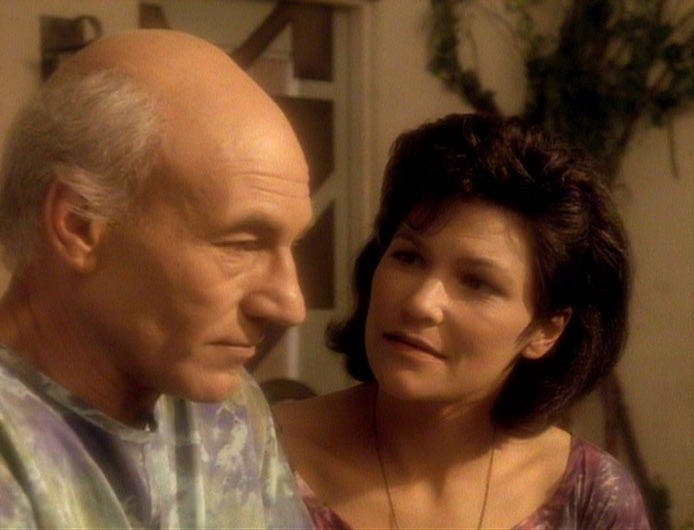
StarTrek.com
In one of the best hours of Trek from any series, Picard finds himself living a whole new life in a dreamlike state. On the planet Kataan, Picard is now known as Kamin, a regular man with a wife and a family. Twenty minutes pass as the Enterprise crew tries to revive their captain, but during that short period of time Picard lives an entire lifetime on the dying world, experiencing the planet’s culture and world even as it enters its final years.
It is revealed that the inhabitants of the planet sent the probe into so that someone, “a teacher,” could learn about them and remember them following their planet’s demise. The probe found Picard, and so he carries with him a civilization that has been dead a thousand years. It’s a deeply moving episode that sets up the idea of Picard as someone who carries the legacy of those who have come before inside of him. If you need a reminder of Picard’s capacity for empathy and compassion, this is the perfect example. Besides, it’s a phenomenal episode in the Trek canon, and worth a revisit just to be reminded of the highest of highs from the franchise.
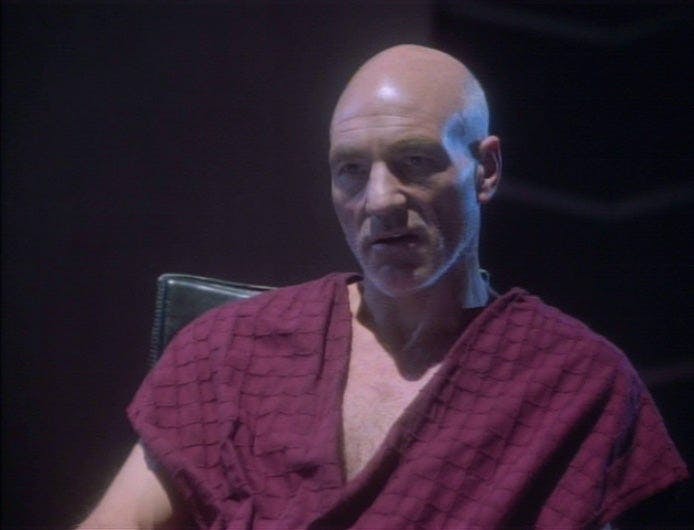
StarTrek.com
While on a secret mission to destroy a Cardassian biological weapon, Picard is captured and tortured both physically and psychologically by a ruthless military leader. While he is ultimately saved, he privately admits to counselor Deanna Troi that he was at his breaking point by the time of his release and was willing to do anything to get the torture to stop, even if he was rescued before he had the chance to break under the strain.
Picard has endured many traumas in his life and his time as the captain of the Enterprise, but it is important that he admits his own humanity in these moments. Weakness is not a failure, not to him, and he allows himself moments where he can be human rather than a stalwart captain. If Picard can survive and endure, then we can all take lessons from him that we can also endure our own personal traumas. Picard survives, no matter what. We, the viewers, can all survive as well.
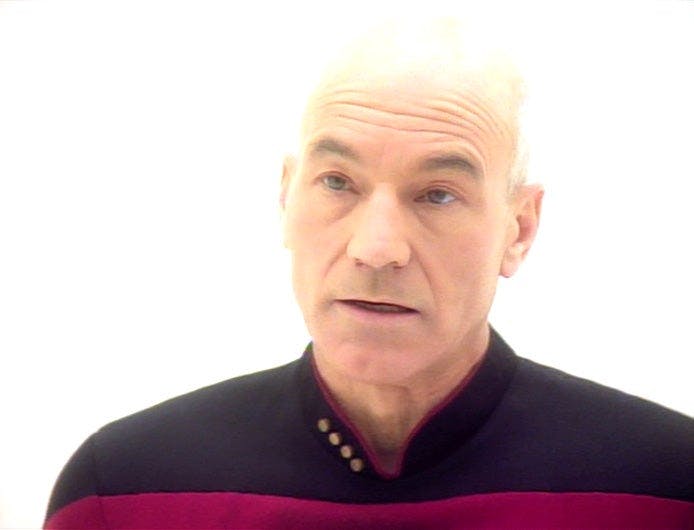
StarTrek.com
After an attack during a mission, Picard is sent into cardiac arrest as his artificial heart is put under strain. When he “dies” from his wounds, he runs into old friend Q, who gives him the chance to relive the events that led to him receiving an artificial heart. These events would have led to his survival during that particular mission, but he would not have become the captain of the Enterprise due to an aversion to risk. Picard declares he’d rather die as captain than live as no one. Q returns him to his timeline, where he survives and reflects on his experience.
Q tells Picard that his near death experience as a cadet taught him about his mortality and how life is too short to play it safe. This led to Picard being the man he is during the events of Next Generation and the ensuing films. Picard knows that his life is too brief to waste it by doing nothing. He must take action, which makes his new profession in Picard so interesting. There is nothing wasteful about returning to his family’s vineyard, but it is not as risky or remarkable as his time as captain.
Could Picard see something that challenges his worldview in the beginning of the upcoming series? What could happen that could make Picard choose a safer path? And is it even a safer path, or is there a secret behind Picard’s newfound quiet life?
Star Trek: Insurrection
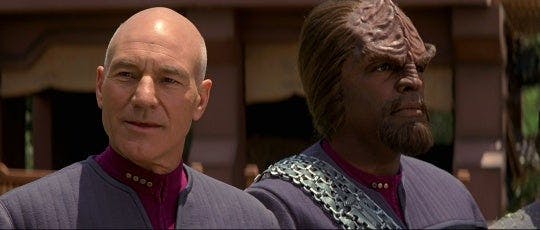
StarTrek.com
In the third film featuring the Next Generation crew, Picard discovers a plot by the Son’a people to forcibly relocate the peaceful Ba’ku people so they can exploit their planet for its rejuvenating properties; the process would poison the planet with radiation, rendering it unlivable. Picard ultimately stops the Son’a from harvesting the planet which leads to the Ba’ku forgiving the Son’a and reuniting their people.
When Picard finds out that the Federation is involved with the Son’a’s plot, he does not stand by. Instead he fights for what he feels is ultimately right. We know that Picard is not above disobeying orders and fighting for the little guy when he knows it is right, which is key to both his character and to the philosophy of Star Trek in general.
When faced with his new challenges in Picard, will our captain once more have to rebel against Starfleet? We know he leaves his role as admiral, which points to a philosophical break between the two. Picard’s inner sense of right and wrong is key to his character, and I can’t wait to see what drives him to both leave Starfleet and, later, return to the stars.
Learn to Love The Borg
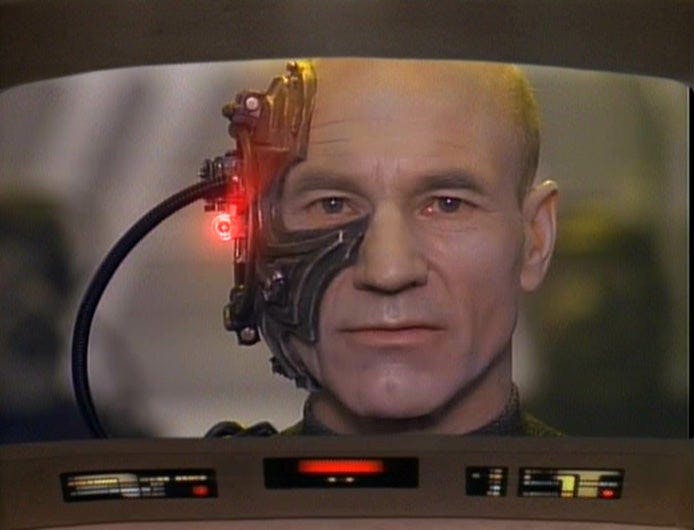
StarTrek.com
In this harrowing season finale, Picard is captured by the Borg and turned into Locutus, mouthpiece for the Borg army. The Enterprise faces a horrible choice: fire upon the Borg ship and destroy their captain, or allow the Borg to continue traveling towards Earth. Riker, acting as captain, makes the choice to fire on the ship… but thankfully, the Borg are undamaged and the crew has a second chance to save their captain.
Picard is ultimately rescued and returned to his human state, but at great cost to his mind and body. The torture he underwent with the Borg was immense, and it deeply impacted the character and his relationship with the Borg going forward. As one of his archenemies, the Borg might have exacted the greatest personal toll from him. And yet, Picard remains the steadfast leader he has always been. It just takes some healing, as we saw in the episode “Family.”
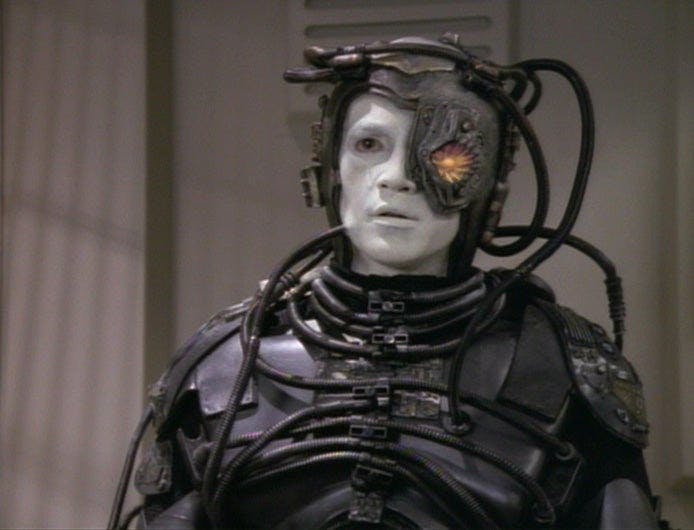
StarTrek.com
Picard faces off against the Borg again when the away team discovers an injured Borg drone on an icy planet. When Dr. Crusher is unable to stand by and let the drone die, Picard allows her to bring him on board. When he learns that he has the chance to use their prisoner to end the Borg threat, ultimately Picard chooses to let the newly named Hugh live, rather than destroy the entire Collective.
This episode presents Picard with a difficult philosophical question. Is all fair in the battle against the Borg? Is an individual to blame for all the sins the Borg have committed? When encountering Hugh, Picard’s assumptions about the Borg are challenged, and in doing so Picard becomes a stronger, better leader. It shows his willingness to find the humanity in all he meets, even if he is facing off against an enemy that has never extended him or his crew the same grace.
This is particularly important in the wake of “The Best of Both Worlds,” during which the Borg tortured Picard. The Borg were more than willing to destroy Picard for their own gains, but he is not willing to exact revenge in a manner that would be both cruel and unusual. This marks Picard’s humanity, and his compassionate nature. He is tough, but never cruel, and that is what makes him stand out as a character.
Star Trek: First Contact
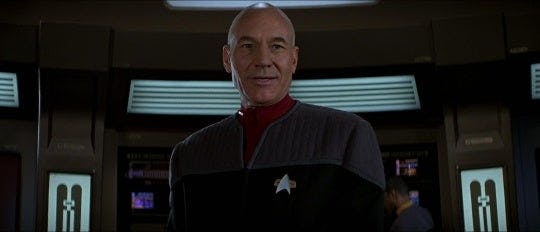
StarTrek.com
With the Borg headed for Earth, Picard is drawn back into the fray against this treacherous enemy. The Borg travel back in time to prevent first contact between humans and Vulcans and assimilate the planet, but the Enterprise, along with a couple intrepid new friends, are able to stop them by neutralizing their threat. While most of the Borg still exist in the future, the Borg Queen is taken out, alongside her ship.
The Borg are complicated and fascinating villains, and it will be interesting to see how they are featured in Picard. As with many characters, Picard ventures beyond the end of the known timeline to explore the future of Starfleet. Have the Borg recovered their power to try and take over the universe again, or are they now refugees and scattered survivors? Again, these are the questions we’ll have to wait to answer.
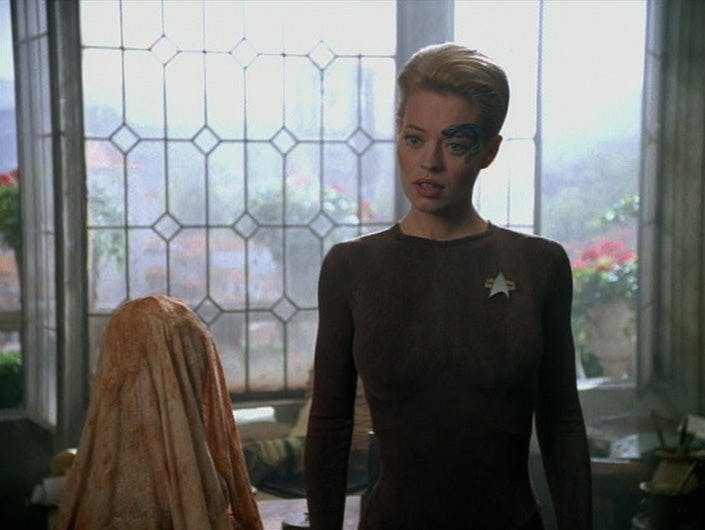
StarTrek.com
The only Voyager episode on our list, this episode focuses on Seven of Nine, who will be making an appearance in Star Trek: Picard. Recently freed from the Borg Collective, she is trying to learn once more to be human. She ultimately discovers her parent's ship, the Raven, which she was assimilated on when the Borg captured her and her family years before. When Janeway, at the end of the episode, offers to give her records of her parents, she says that she'll read them one day.
Seven of Nine is a beloved character, and this episode highlights her nuance and complexity. It also highlights the tragic nature of her life. Assimilation isn't easy, and her struggle to become human again shows her courage. What will she be like when Picard runs into her out in the universe? We can only wait to see.
Getting to Know Data
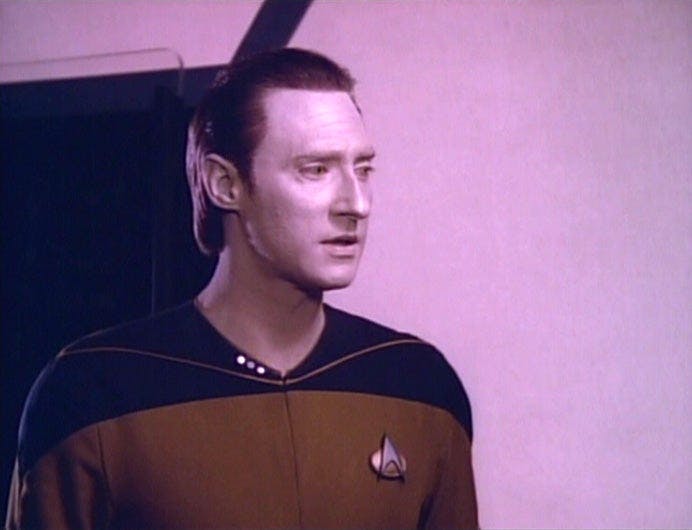
StarTrek.com
In one of the first episodes to highlight Data and his brother, Lore, “Datalore” features Brent Spiner playing both androids. It also serves as an origin story, as it explains where Data came from and who made him. While Lore is a decidedly evil creation, Data serves as a figure of good. Lore says he is the second and more “perfect” model, he’s lying and is envious of Data being the second and improved creation.
This episode drew praise for Spiner’s performance, and it highlights not only Data’s loyalty to the crew but the goodness seemingly coded into his being.
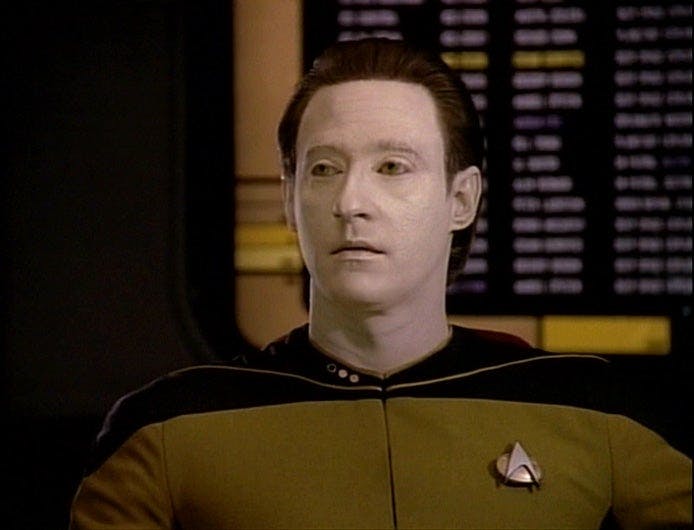
StarTrek.com
The debate over Data’s personhood rages on in this episode, as the crew engages in a debate over whether or not Data is a person or if he is property of Starfleet. When a Starfleet officer wants to experiment on Data, Riker is forced to argue against Data’s personhood, though ultimately Data and Picard are able to prove that Data is a sentient being and therefore entitled to the autonomy of making his own choices.
This is a key episode in Data’s story. He is more than a machine used by Starfleet, but instead is a deeply human character, even if he is an android. Data displays the human trait of forgiveness both towards the officer who wanted to experiment on him and towards Riker, who deeply regrets his role in the proceedings. To paraphrase Captain Kirk, of all the souls Picard and the Enterprise met on their journeys, Data’s might be the most human.
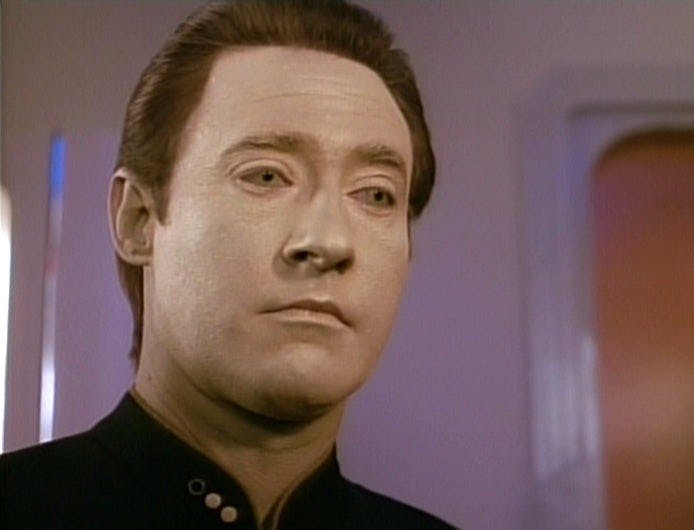
StarTrek.com
Lore and Dr. Noonien Soong, Data’s creator, are both back in this episode that once more highlight’s Data’s humanity. Both Data and Lore are recalled to Soong's deathbed, where he intends to give Data a chip that allows him to experience emotions. However, Lore deceives Soong and is able to receive the chip instead. Data apologizes for not being able to grieve his creator's loss and returns to the Enterprise, where he reflects on what has happened.
Data's quest for emotions is key to his character, and this episode highlights this journey. While Lore ultimately gets the chip, Data remains the more human of the two brothers. Even without a chip to experience emotions, Data can still be empathetic to a degree his brother cannot.
Everything You Need to Know About Romulans
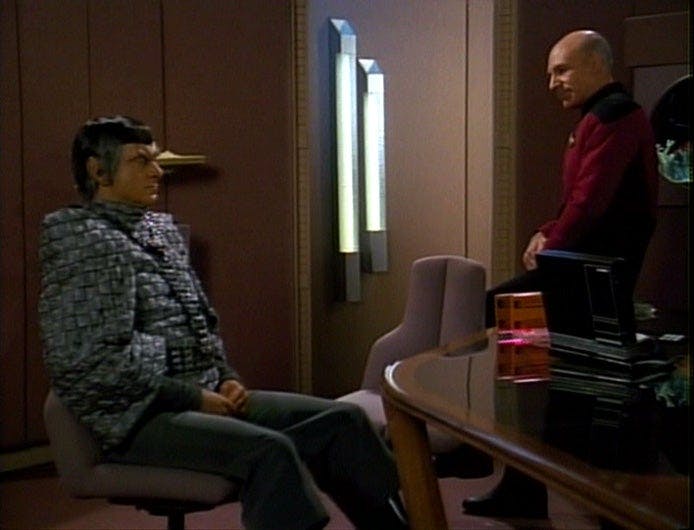
StarTrek.com
Picard tries to help a Romulan admiral defecting from the Empire in this episode. Admiral Jarok makes the choice to never see his family again to help the Federation; ultimately, his defection is used by the Romulans to stage a trap for the Enterprise. Though Jarok kills himself, Picard is left with a note for Jarok's family and the knowledge that some Romulans have the courage to push back against the Romulan Empire.
This is a key episode for Romulan-Federation relationships, and establishes that while Picard isn't the biggest fan of the Romulans, he respects them. Given the pending destruction of the Romulan homeworld, this is incredibly important. After all, Picard will be faced with the decision to extend his hand to help the Romulans, even after fighting with them in various episodes. That is the mark of a truly good captain.
Star Trek: Nemesis
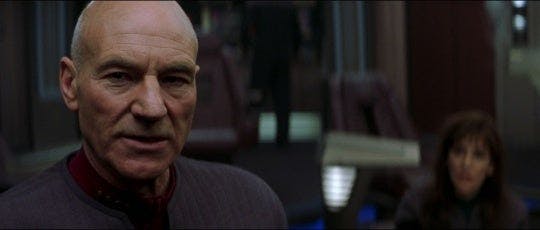
StarTrek.com
Picard faces off against the Romulan leader Shinzon in Nemesis, who has staged a coup of the Romulan government and who says he wants peace with the Federation, but who secretly plots their demise. Shinzon is a clone of Picard, originally created by the Romulans to plant a spy in the Federation, but was abandoned on the planet Remus to die instead. When Shinzon attempts to eradicate all life on Earth, ultimately two Romulan ships attempt to aid the Enterprise in stopping him, not wanting to be associated with Shinzon’s schemes.
Picard is able to defeat his clone and foil his plot, but it is Data who makes the ultimate sacrifice by staying on Shinzon’s ship to ultimately destroy it and die in the process. The crew parts ways, with Riker heading to negotiate peace with the Romulans on the USS Titan. Picard discovers that Data has implanted his neural networks on another android, B-4, which means that he can ultimately return.
This was, until now, the end of the story of Picard and his crew. We know that Data will return, and so will other crew members. It is still a high note to end on, even with Data’s loss; after all, the Federation might find peace with their longtime enemy. However, a threat was looming in the universe that no one could have prepared for, one that will lead into the coming story...
Star Trek (2009)
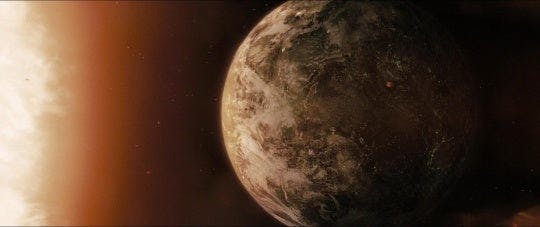
StarTrek.com
The JJ Abrams helmed film sets up one of the key plots in Star Trek: Picard. The film reveals that the Romulan homeworld is destroyed by a star going supernova. While Ambassador Spock was able to save the rest of the universe, he was unable to save the planet, and in turn he created a black hole that swallowed his ship as well as a Romulan mining craft bent on revenge. While the majority of the galaxy was saved, Spock and the Romulan ship were sent careening into a different timeline. That marked the end of what we call the Prime Timeline prior to the end of the second season of Star Trek: Discovery.
Picard takes place in the Prime Timeline after the destruction of Romulus and the forced relocation of the Romulan people. Given that Picard had tangled with the Romulans throughout The Next Generation and some of the cast’s films, this sets up an interesting dynamic. Can the Admiral make peace with one of his greatest enemies at their darkest hour?
Star Trek: Picard will premiere exclusively on January 23 on CBS All Access in the United States, in Canada on Bell Media’s CTV Sci-Fi Channel and OTT service Crave, and on January 24 Amazon Prime Video in more than 200 countries and territories

